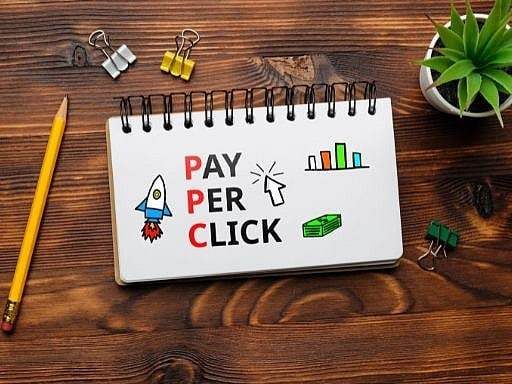Main Links

Last Updated April 15, 2025
 PPC budgeting is a way to manage your spending on search engine advertising campaigns. It helps you stay within your budget while ensuring you get the most out of your ad spend.
It involves setting up a budget and then carefully monitoring how much you are spending so that you can make adjustments as needed. This can help you increase the visibility of your ads, reach more potential customers, and maximize the return on investment for your campaign.
PPC budgeting is the process of managing the budget allocated to search engine advertising campaigns. It involves setting a budget and then tracking and monitoring spending to ensure that the most is being made of the available funds.
This includes optimizing bids and targeting to reach the most relevant and interested audiences. Additionally, PPC budgeting can involve setting and monitoring daily, weekly, and monthly budgets for each campaign, and making adjustments as needed to ensure the campaign is achieving its desired goals and staying within its budget.
This helps ensure that campaigns are achieving the best possible results while managing costs and helping to maximize ROI.
PPC budgeting is a way to manage your spending on search engine advertising campaigns. It helps you stay within your budget while ensuring you get the most out of your ad spend.
It involves setting up a budget and then carefully monitoring how much you are spending so that you can make adjustments as needed. This can help you increase the visibility of your ads, reach more potential customers, and maximize the return on investment for your campaign.
PPC budgeting is the process of managing the budget allocated to search engine advertising campaigns. It involves setting a budget and then tracking and monitoring spending to ensure that the most is being made of the available funds.
This includes optimizing bids and targeting to reach the most relevant and interested audiences. Additionally, PPC budgeting can involve setting and monitoring daily, weekly, and monthly budgets for each campaign, and making adjustments as needed to ensure the campaign is achieving its desired goals and staying within its budget.
This helps ensure that campaigns are achieving the best possible results while managing costs and helping to maximize ROI.
 PPC management software is a powerful tool for budgeting and managing campaigns. It allows users to track their finances in real-time, set goals and limits, optimize campaigns for better performance, and analyze their results.
Additionally, PPC management software can help users identify opportunities to save money by automatically adjusting bids and ad placements based on results. With its range of features, PPC management software is a great way to keep your campaigns organized and budgeted.
PPC management software is a powerful tool for managing campaigns and budgets for PPC advertising. It allows users to track their finances in real-time, set goals and limits, optimize campaigns for better performance, and analyze their results.
Additionally, PPC management software can help users identify opportunities to save money by automatically adjusting bids and ad placements based on results. The software also provides useful features such as keyword research, A/B testing, and split-testing.
This allows users to make data-driven decisions about their campaigns and create ads that are more likely to perform well. With its range of features, PPC management software is a great way to keep your campaigns organized and budgeted. PPC management software is an essential tool for any business looking to maximize the return on their PPC investment.
PPC management software is a powerful tool for budgeting and managing campaigns. It allows users to track their finances in real-time, set goals and limits, optimize campaigns for better performance, and analyze their results.
Additionally, PPC management software can help users identify opportunities to save money by automatically adjusting bids and ad placements based on results. With its range of features, PPC management software is a great way to keep your campaigns organized and budgeted.
PPC management software is a powerful tool for managing campaigns and budgets for PPC advertising. It allows users to track their finances in real-time, set goals and limits, optimize campaigns for better performance, and analyze their results.
Additionally, PPC management software can help users identify opportunities to save money by automatically adjusting bids and ad placements based on results. The software also provides useful features such as keyword research, A/B testing, and split-testing.
This allows users to make data-driven decisions about their campaigns and create ads that are more likely to perform well. With its range of features, PPC management software is a great way to keep your campaigns organized and budgeted. PPC management software is an essential tool for any business looking to maximize the return on their PPC investment.
 When it comes to managing your PPC budget, it's important to understand exactly where your money is going. Evaluate the effectiveness of your campaigns and make sure that you're aware of any costs associated with them.
This will help you better allocate your budget and make sure that every dollar is being spent in the most efficient way possible. When it comes to managing your PPC budget, understanding the metrics and analytics behind your campaigns is key.
Start by understanding how much you’re spending on each campaign and what types of results you’re getting from them. This will help you identify which campaigns are most effective and where you’re likely to see the highest returns on investment.
Next, consider the size of your budget and whether or not it’s sufficient to achieve your desired goals. If you need to adjust your budget, make sure to do so gradually so that you don’t upset the effectiveness of your campaigns.
Finally, set realistic expectations for what your budget can achieve. Allocate your budget to the campaigns that will yield the highest returns and be willing to experiment with different strategies and tactics.
Keep track of your results and make adjustments as needed. With a better understanding of your budget, you’ll be able to maximize the effectiveness of your campaigns and get the most out of your PPC budget.
When it comes to managing your PPC budget, it's important to understand exactly where your money is going. Evaluate the effectiveness of your campaigns and make sure that you're aware of any costs associated with them.
This will help you better allocate your budget and make sure that every dollar is being spent in the most efficient way possible. When it comes to managing your PPC budget, understanding the metrics and analytics behind your campaigns is key.
Start by understanding how much you’re spending on each campaign and what types of results you’re getting from them. This will help you identify which campaigns are most effective and where you’re likely to see the highest returns on investment.
Next, consider the size of your budget and whether or not it’s sufficient to achieve your desired goals. If you need to adjust your budget, make sure to do so gradually so that you don’t upset the effectiveness of your campaigns.
Finally, set realistic expectations for what your budget can achieve. Allocate your budget to the campaigns that will yield the highest returns and be willing to experiment with different strategies and tactics.
Keep track of your results and make adjustments as needed. With a better understanding of your budget, you’ll be able to maximize the effectiveness of your campaigns and get the most out of your PPC budget.
 If you're looking to maximize your return on investment (ROI) from your (PPC) budget, it's important to ensure that you are taking the necessary steps to optimize your budget. This includes regularly analyzing performance metrics, setting up campaigns with specific goals in mind, and keeping track of keyword trends.
By taking the time to properly manage and optimize your PPC budget, you can ensure that you are getting the best ROI possible. When it comes to optimizing your PPC budget for the best ROI, there are several key steps that should be taken.
First and foremost, it's important to closely monitor the performance of your campaigns and adjust accordingly. This means regularly analyzing metrics such as click-through rate (CTR), cost per click (CPC), and conversion rate.
Additionally, you should define specific goals for each campaign and monitor the results to ensure that you are meeting those goals. Next, you should ensure that you are using the right keywords to target your audience. Pay close attention to current keyword trends and update your campaigns accordingly.
Additionally, you should use negative keywords to ensure that your ads are only displayed to the most relevant users. Finally, you should test different ad variations, such as different ad copy, ad extensions, and call-to-action (CTA) buttons, to maximize your ROI.
By following these steps, you can ensure that your PPC budget is optimized for the best possible ROI. By closely monitoring the performance of your campaigns and making the necessary changes, you can make the most of your budget and get the best results.
If you're looking to maximize your return on investment (ROI) from your (PPC) budget, it's important to ensure that you are taking the necessary steps to optimize your budget. This includes regularly analyzing performance metrics, setting up campaigns with specific goals in mind, and keeping track of keyword trends.
By taking the time to properly manage and optimize your PPC budget, you can ensure that you are getting the best ROI possible. When it comes to optimizing your PPC budget for the best ROI, there are several key steps that should be taken.
First and foremost, it's important to closely monitor the performance of your campaigns and adjust accordingly. This means regularly analyzing metrics such as click-through rate (CTR), cost per click (CPC), and conversion rate.
Additionally, you should define specific goals for each campaign and monitor the results to ensure that you are meeting those goals. Next, you should ensure that you are using the right keywords to target your audience. Pay close attention to current keyword trends and update your campaigns accordingly.
Additionally, you should use negative keywords to ensure that your ads are only displayed to the most relevant users. Finally, you should test different ad variations, such as different ad copy, ad extensions, and call-to-action (CTA) buttons, to maximize your ROI.
By following these steps, you can ensure that your PPC budget is optimized for the best possible ROI. By closely monitoring the performance of your campaigns and making the necessary changes, you can make the most of your budget and get the best results.
 If you're looking to get the most out of your PPC budget, it's important to know how much to allocate for each campaign. Determining a budget for your PPC campaigns can be tricky, but there are a few steps you can take to ensure that you are getting the maximum bang for your buck.
Utilizing data on your current campaigns, finding the right target audience, and setting realistic goals are key factors in determining an effective PPC budget that will help you achieve your desired results. When it comes to determining a PPC budget, it’s important to look at your current campaigns to get an idea of what’s working and what isn’t.
Analyzing previous campaigns can provide valuable insights into the best practices for your future campaigns. Consider the amount of traffic your current campaigns are generating and the cost per click (CPC) you’re paying for each click.
This can help you determine how much you should be willing to pay for each click and how much you should be budgeting for each campaign. Another important factor in determining a PPC budget is finding the right target audience.
Knowing who your target audience is and where they’re located can help you identify the best channels and keywords to use in your campaigns. You can then allocate your budget to target the most relevant audience and maximize your return on investment.
Finally, it’s important to set realistic goals for your campaigns. What KPIs or Key Performance Indicators do you want to reach and how much do you need to budget in order to reach them?
Consider the amount of time and resources you have available and create an achievable timeline for your campaigns. This will help you allocate the right amount of your budget for each campaign and ensure that you are getting the most out of your PPC budget.
If you're looking to get the most out of your PPC budget, it's important to know how much to allocate for each campaign. Determining a budget for your PPC campaigns can be tricky, but there are a few steps you can take to ensure that you are getting the maximum bang for your buck.
Utilizing data on your current campaigns, finding the right target audience, and setting realistic goals are key factors in determining an effective PPC budget that will help you achieve your desired results. When it comes to determining a PPC budget, it’s important to look at your current campaigns to get an idea of what’s working and what isn’t.
Analyzing previous campaigns can provide valuable insights into the best practices for your future campaigns. Consider the amount of traffic your current campaigns are generating and the cost per click (CPC) you’re paying for each click.
This can help you determine how much you should be willing to pay for each click and how much you should be budgeting for each campaign. Another important factor in determining a PPC budget is finding the right target audience.
Knowing who your target audience is and where they’re located can help you identify the best channels and keywords to use in your campaigns. You can then allocate your budget to target the most relevant audience and maximize your return on investment.
Finally, it’s important to set realistic goals for your campaigns. What KPIs or Key Performance Indicators do you want to reach and how much do you need to budget in order to reach them?
Consider the amount of time and resources you have available and create an achievable timeline for your campaigns. This will help you allocate the right amount of your budget for each campaign and ensure that you are getting the most out of your PPC budget.
 When it comes to PPC budget management, monitoring your results and adjusting as needed is absolutely essential. It's important to regularly analyze your campaign performance, so you can quickly identify any issues and make necessary changes in order to stay on track with your budget.
This can help you optimize your campaigns and maximize your ROI. The more data you have, the better equipped you are to make informed decisions about where to best allocate your budget.
To get the most out of your campaigns, you should regularly review the performance of each of your campaigns and identify any areas where you can make improvements. It’s important to track your campaigns’ data over time to make sure you’re getting the most bang for your buck.
Look at your cost per click (CPC), click-through rate (CTR), average position, and other metrics to determine which ads are performing best. You can then use this data to adjust your bids, target keywords, and other settings to optimize your campaigns and improve your ROI.
In addition, you should look at external factors such as changes in the market, competition, and other industry events that could affect your campaigns. Keeping an eye on these trends can help you stay ahead of the competition and make sure your budget is being used in the most efficient way.
Finally, keep in mind that the best way to adjust your budget is to test new strategies and ideas. Experiment with different ad copy, keywords, bids, and other settings to see which works best for your goals. Once you’ve identified what works and what doesn’t, you can adjust your campaigns and budget accordingly.
When it comes to PPC budget management, monitoring your results and adjusting as needed is absolutely essential. It's important to regularly analyze your campaign performance, so you can quickly identify any issues and make necessary changes in order to stay on track with your budget.
This can help you optimize your campaigns and maximize your ROI. The more data you have, the better equipped you are to make informed decisions about where to best allocate your budget.
To get the most out of your campaigns, you should regularly review the performance of each of your campaigns and identify any areas where you can make improvements. It’s important to track your campaigns’ data over time to make sure you’re getting the most bang for your buck.
Look at your cost per click (CPC), click-through rate (CTR), average position, and other metrics to determine which ads are performing best. You can then use this data to adjust your bids, target keywords, and other settings to optimize your campaigns and improve your ROI.
In addition, you should look at external factors such as changes in the market, competition, and other industry events that could affect your campaigns. Keeping an eye on these trends can help you stay ahead of the competition and make sure your budget is being used in the most efficient way.
Finally, keep in mind that the best way to adjust your budget is to test new strategies and ideas. Experiment with different ad copy, keywords, bids, and other settings to see which works best for your goals. Once you’ve identified what works and what doesn’t, you can adjust your campaigns and budget accordingly.